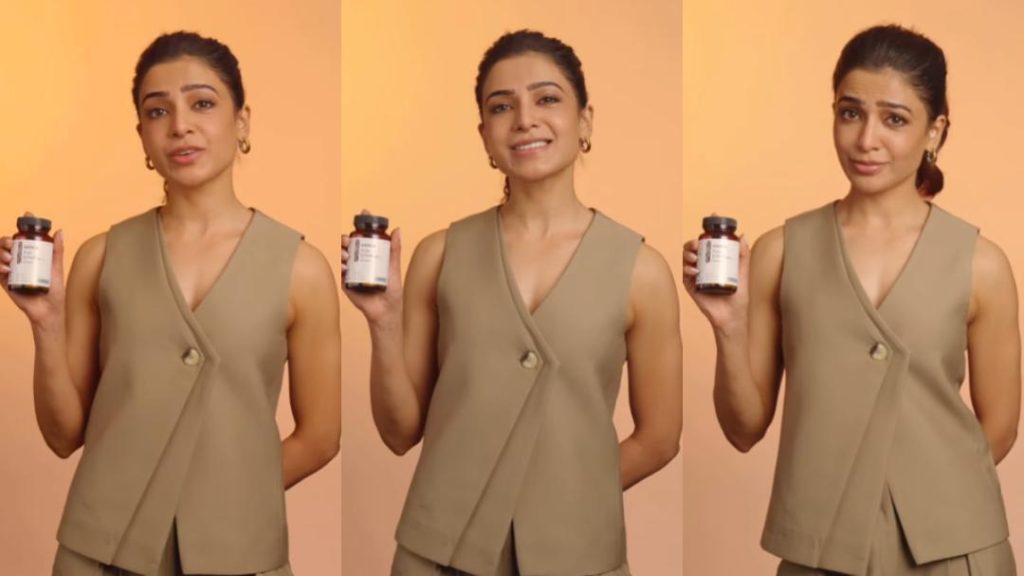
Doctor calls Samantha ‘science-illiterate’ over fraud claim
In a recent development, actress Samantha Ruth Prabhu has been slammed by Dr. Cyriac Abby Philips, a renowned doctor and liver specialist, for promoting NMN supplements as anti-ageing solutions. Dr. Philips, popularly known as “The Liver Doc,” has labelled Samantha’s claims as misleading, citing a lack of human evidence supporting NMN’s benefits.
The controversy began when Samantha, a popular Indian actress, took to her social media platform to promote NMN supplements, claiming that they can reverse the signs of aging. NMN, or Nicotinamide Mononucleotide, is a synthetic molecule that is believed to have anti-aging properties. However, Dr. Philips, in a scathing Facebook post, called out Samantha’s claims as “science-illiterate” and “fraudulent.”
“How science-illiterate movie celebrities defraud their millions of followers by selling supplements that do not work at all,” Dr. Philips wrote. “Samantha Ruth Prabhu, you have no business promoting NMN supplements as anti-aging solutions. You are not a scientist, you are not a researcher, and you have no training in medicine.”
Dr. Philips went on to explain that while NMN has shown promise in animal studies, there is currently no human evidence to support its use as an anti-aging supplement. He also pointed out that the FDA has not approved NMN as a dietary supplement, and that it is not licensed for human consumption.
Samantha’s promotion of NMN supplements has raised concerns among health experts and scientists, who warn that celebrities like Samantha are putting their followers’ health at risk by promoting unproven and potentially harmful products.
In his post, Dr. Philips also called out other celebrities who have promoted unproven supplements and products, stating that they are “preying on the ignorance of their followers” and “making a quick buck off their gullibility.”
The controversy has sparked a heated debate on social media, with some defending Samantha’s right to promote her favorite supplements, while others are calling for greater transparency and accountability from celebrities who promote health and wellness products.
So, what is NMN, and does it really work? Let’s take a closer look.
What is NMN?
NMN is a synthetic molecule that is believed to have anti-aging properties. It is a derivative of vitamin B3, also known as nicotinamide, and is produced in the body as a result of metabolism. NMN is believed to have a number of potential benefits, including:
- Increasing the production of NAD+, a molecule that is essential for energy production and cellular health
- Improving mitochondrial function, which can help to reduce the risk of age-related diseases
- Reducing inflammation and oxidative stress, which can contribute to the aging process
Does NMN really work?
While NMN has shown promise in animal studies, there is currently no human evidence to support its use as an anti-aging supplement. In fact, a number of studies have raised concerns about the safety and efficacy of NMN supplements.
For example, a study published in the journal Nature Medicine found that NMN supplements increased the production of NAD+ in mice, but did not have the same effect in humans. Another study published in the Journal of the American Medical Association found that NMN supplements did not improve cognitive function or reduce the risk of age-related diseases in older adults.
Despite the lack of human evidence, NMN supplements are widely available online and in health food stores. However, Dr. Philips and other health experts are warning that these supplements are not licensed for human consumption and may be harmful.
The risks of unproven supplements
The controversy surrounding NMN supplements highlights the risks of unproven and untested supplements. Celebrities like Samantha may not have the necessary expertise or training to evaluate the scientific evidence behind these products, and may be putting their followers’ health at risk by promoting them.
In addition to the potential risks of unproven supplements, there are also concerns about the lack of regulation and oversight in the supplement industry. Supplements are not subject to the same rigorous testing and approval process as prescription medications, which means that they may contain harmful ingredients or be contaminated with toxins.
Conclusion
The controversy surrounding NMN supplements and Samantha’s promotion of them highlights the importance of critically evaluating the scientific evidence behind any health product or supplement. Celebrities like Samantha may have a large following, but they are not experts in medicine or science. It is up to us to do our own research and make informed decisions about our health and wellness.
As Dr. Philips so eloquently put it, “It is not science-illiterate movie celebrities who should be promoting supplements, but rather qualified scientists and healthcare professionals who have spent years studying the human body and its many mysteries.”
Source:






